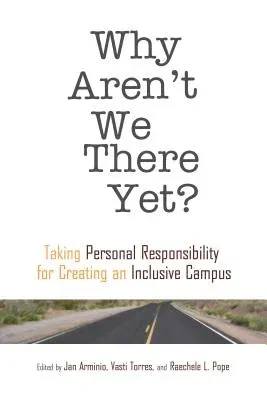**Co-published with
**Despite seeming endless debate and public attention given to the issue
for several decades, those committed to creating welcoming and engaging
campus environments for all students recognize that there is
considerably more work to be done, and ask "Why aren't we there yet, and
when will we be done?"
While our campuses have evolved from being exclusionary and intolerant,
and publicly espouse the objectives of being welcoming, accepting,
affirming, and engaging, the data on admissions, retention, and
graduation clearly indicate that these goals have not been achieved.
The contributors to this book seek to offer new insights to improve
student affairs, emphasizing action that recognizes this is a complex
and multi-faceted process, and beginning with the assertion that,
without recognizing the influences of privilege and inequality, we
educators cannot promote truly welcoming environments.
This book focuses on guiding individuals and groups through learning how
to have difficult conversations that lead us to act to create more just
campuses, and provides illustrations of multiple ways to respond to
difficult situations. It advocates for engaging in fruitful dialogues
regarding differing social identities including race, ethnicity,
religion, gender, and sexual orientation, to lead readers through a
process that advocates for justice, and for taking personal
responsibility for contributing to the solution.
The book is framed around the five elements of the process of engaging
in difficult conversations that not only advocate for change but also
create change: self knowledge, knowledge of and experiences with others,
understanding historical and institutional contexts, understanding how
to change the status quo, and transformative action.

